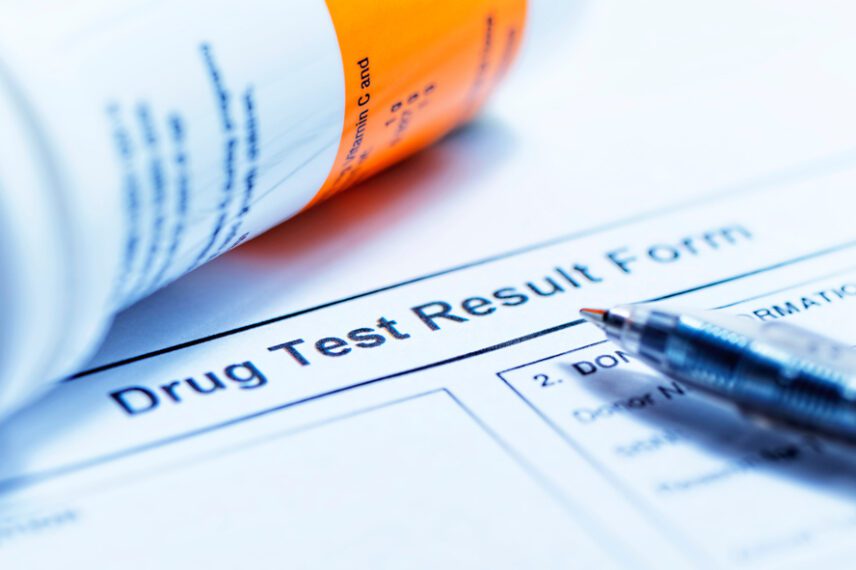Can I Still Receive Workers Compensation if I Test Positive on My Drug Test?

Workers’ compensation benefits are designed to help employees who are injured on the job. However, what happens when an employee tests positive for drugs? Will they still be able to receive workers’ compensation benefits?
The answer depends on a variety of factors. So let’s take a look at some of the most common factors involved in determining your eligibility for workers’ compensation benefits following a positive drug test.
Using Drugs in the Workplace
Most companies have policies in place to prevent drug use in the workplace, especially jobs where using heavy machinery, expensive equipment, or driving company vehicles is a part of the daily routine. These jobs typically require employees to submit to regular drug testing as a safety precaution to prevent serious workplace accidents from occurring.
Thus, if an employee tests positive for drugs after a workplace injury occurs, while not wholly impossible, it does become much harder for them to receive workers’ compensation benefits. If an employer can easily prove that drugs played a part in the injury, then the employee is unlikely to receive compensation.
However, there are a few exceptions to the rule, such as the following:
The Drugs Were Not the Cause of the Injury
For instance, if an employee is injured driving a company vehicle and tests positive for methamphetamine, they are unlikely to receive workers’ compensation benefits unless it can be proven that there was another cause for the accident.
So, if the police report determines that a stray animal ran in front of their vehicle, causing them to veer off the road, it’s possible to still receive benefits.
The Company Has a Lenient Drug Policy
Another potential factor that may determine an injury victim’s ability to receive benefits includes the type of drug policy a company has in place. If the company has a clearly stated, zero-tolerance drug policy and it’s clear the worker violated the policy, then it becomes much more difficult for the worker to receive any workers’ compensation benefits.
However, if the policy is more lenient, has loopholes, or is poorly documented, the injured employee has a much better chance of being eligible for benefits.
Your State’s Workers’ Compensation Laws May Be More Lenient
It’s worth mentioning that some states have particular laws regarding workers’ comp benefits and drug use. In some states, an employee who tests positive for drugs might be required to undergo drug treatment therapy before receiving full benefits.
In contrast, other states may require the employer to provide concrete proof that the worker’s drug use specifically caused their injury.
Other Possible Reasons
A few situations which could make it easier to receive workers’ compensation benefits despite testing positive for drug use include:
-
Having a medical prescription for that drug.
For instance, prescription medications that are legally prescribed and used as intended cannot be used to dismiss your benefits. Additionally, a legal marijuana prescription can also be used as a justifiable defense.
-
Using a Prescription Medication Which Contains a Regulated Substance
Some prescription drugs, such as pain relievers, may contain opiates or other drugs which test positive on a test. If legal, this would invalidate the drug testing process.
-
If the Samples Were Handled Improperly
If the proper testing procedures were violated while handling your drug test samples, you could mount a defense to your claim.
-
Your Employer Consented to You Using Illegal Substances
If an employer gives you illegal substances or alcohol during working hours, they cannot use your intoxication to deny your workers’ compensation benefits.
Is A Drug Test Required For Workers’ Comp?
States are not required to drug test their employees following an accident. However, it’s up to the individual workplace whether they choose to administer a drug test after a workplace accident. Some places may not want to pay for the extra testing fees, while some businesses may feel it prudent to determine if the accident resulted from drugs.
Workers’ compensation is a no-fault system, so you don’t need to provide proof if you’re injured on the job. No state requires employers to drug test their employees following an accident. Some employers may not even require a drug test following a workplace accident and may not want to pay for testing or wait for a test to become available. It is up to them to administer a workers’ comp drug test.
Conclusion
Whether an employee can receive workers’ compensation benefits after testing positive on a drug test depends on several factors, including the circumstances of the injury, the company’s drug policy, and state laws.
If you find yourself in a similar situation, it is best to consult with a workers’ compensation attorney who can advise you on your specific case. A workers’ compensation attorney will fight to represent your rights and help you receive the maximum benefits you deserve.






